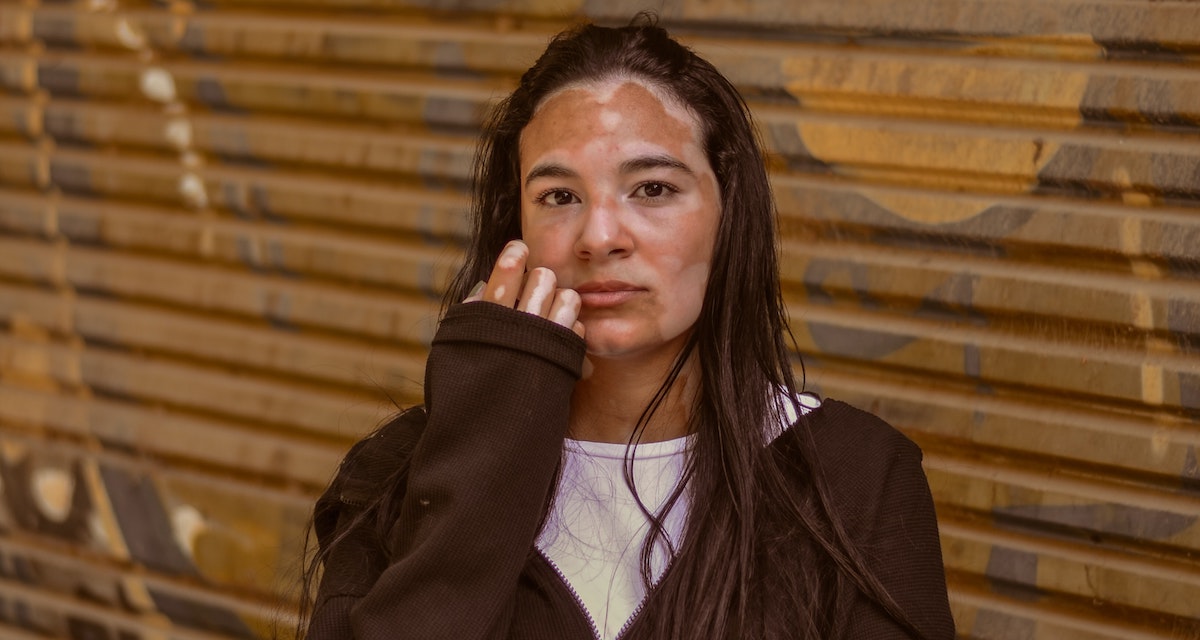Rare Skin Disease Specialist Learns Resilience from His Patients
In 1446 B.C., one of the first cases of vitiligo was presented to a doctor in India. The victim had tried applying henna to cover the white patches on her brown skin and even used cow urine and ground cobra bones as remedies, but nothing worked. Eventual progress was made, but thousands of years later, treatment has barely progressed from the early sunburn and blistering technique the doctor used on his Indian patient in the 15th century.
Since then Dr. John Harris ’98, director of the Vitiligo Clinic and Research Center at the University of Massachusetts Medical School, has taken notable steps in improving vitiligo treatment. In 2019, the President of the United States and the National Institutes of Health awarded Harris the Presidential Early Career Award for Scientists and Engineers for his groundbreaking research on a disease that has long evaded understanding.
Over the course of his career, Harris has worked with patients who demonstrate incredible resilience, which has informed his view of courage. And last week he had the opportunity to share this view with the Gordon community as the guest speaker for the Center for Faith and Inquiry’s annual Herrmann Lectures series under the theme of “Courage in a Crisis.”
Here are a few gems from Harris’ lectures you don’t want to miss:
Session 1 | Vitiligo: Journey to Understand and Treat a Skin Disease
In his first lecture, Harris laid the groundwork for further discussion by describing his area of specialization: vitiligo.
The disease causes a person’s skin to lose its pigment cells, which can leave discolored patches all over a person’s body. And it impacts over 74 million people in the world regardless of race, gender or physical health. As a highly visible disease, vitiligo can come with many social stigmas that lead to bullying and ostracism, which is destructive to a vitiligo patient’s sense of self-worth and belonging.
“They’re white patches that affect the soul,” said Harris.
Currently treatments such as targeted immunotherapy, oral prescriptions and topical creams have proven to work in the short-term, but 40 percent of patients see their white patches return within a year. But, with the help of a new treatment developed by Harris and his team, vitiligo may soon be reversible. This past summer, he and his team at UMass Medical School found that their novel treatment for vitiligo, a topical ruxolitinib, proved safe and highly effective in yet another clinical trial. Because of the treatment’s success, the team is now enrolling patients to support FDA-approval of ruxolitinib, which Harris said, “would represent the first medical treatment ever to achieve this status for vitiligo patients.”
Session 2 | Fulfilling the Greatest Commandment with All Your Mind
When Jesus was asked about the greatest commandment—love the Lord your God with all your heart, soul and mind—he specifically included the mind in a way that previous iterations had not. In his second lecture, Harris asked, “How, then do we love God with all our minds?”
Harris pointed out that loving God with all our minds requires consistent effort—effort to seek out knowledge, apply that knowledge to our lives and teach it to others. It also takes effort to integrate what he knows as a scientist with what he believes as a Christian—and yet that is exactly what the greatest commandment instructs.
For years, debates over creation and evolution, the age of the earth, and human-caused climate change have created tensions between Christians and the scientific community. But Harris asserted that they are not at odds with each other in saying, “It’s very freeing to understand God’s truth and scientific truth together.”
Session 3 | Resilient Courage in Learning, Life and Livelihood
In Harris’ third and final lecture, he explored the role of resilient courage in the scientific sphere and in the big picture, from small setbacks like rejected grant applications to the current global crisis.
As a scientist during the COVID-19 pandemic, Harris knows it will take resilience to find a way forward. “The public has really been given an insight during this pandemic into how science progresses,” he said. “We’re making the best guesses we can for now and we’ll correct it as we get more information.”
To Harris, resilient courage means persevering in the face of failure. He received rejections on the first eight research grant applications he sent out before one was finally accepted. “Failure is the norm in science,” he said.
These experiences were a reminder to Harris that disappointments and failures are only pitstops on the path to success. Learning from failure and success alike is the beginning of resilience, he says, even in the midst of crisis.
By Ellian Chalfant ’22, communication arts, and Anna Kinkade ’21, psychology and communication arts
 The Bell
The Bell